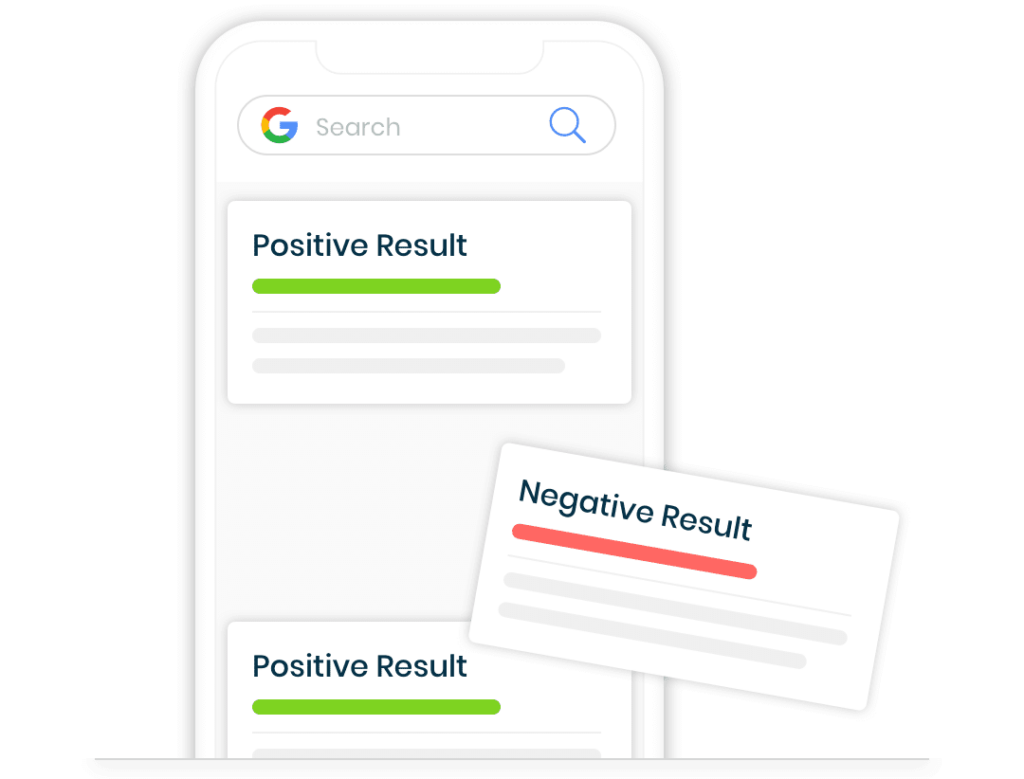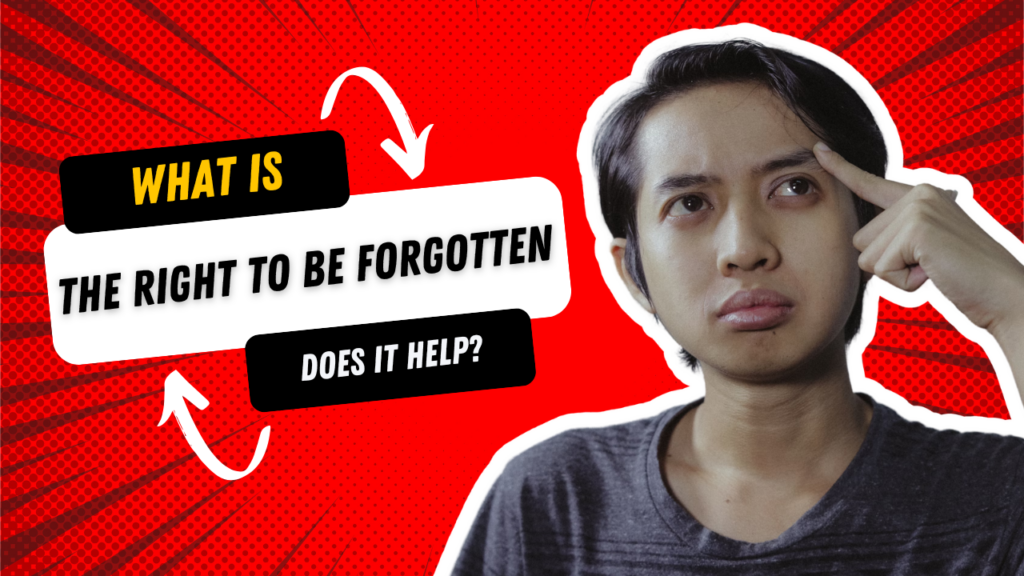What appears about you online can have a lasting impact—especially if it involves legal trouble from the past. Even if your court case is dismissed, resolved, or sealed, it may still show up in Google search results. So, is there anything you can do about it?
You may have heard of the “Right to Be Forgotten,” a concept that gives individuals the ability to request removal of personal information from search engines. But does this apply to court records? And can it help clean up your online presence? Let’s break it down.
Dig Deeper: How to Remove Court Records from Google Search
What Is the Right to Be Forgotten?
The Right to Be Forgotten (RTBF) is the idea that individuals have a right to request that certain personal information be removed from internet search results—especially when that information is outdated, irrelevant, or no longer serves a public interest.
The concept was established in Europe, where the Court of Justice of the European Union (CJEU) ruled in 2014 that people could ask search engines like Google to remove specific links from search results under certain conditions.
In the EU, this right falls under the General Data Protection Regulation (GDPR) and allows users to file delisting requests for personal information—such as old news articles, legal records, or embarrassing content—if it’s no longer relevant or accurate.

Does the Right to Be Forgotten Exist in the United States?
No. The United States does not formally recognize the Right to Be Forgotten the way Europe does. In the U.S., the First Amendment (free speech) and public access to records generally outweigh the right to privacy when it comes to public information—like court records.
That said, some limited privacy protections do exist under U.S. law, and there are other ways to remove or suppress court records even without a legal “right to be forgotten.”
Does It Apply to Court Records?
In Europe: Yes, In Some Cases
In Europe, individuals have successfully requested that Google delist court records—especially for:
- Old or minor convictions
- Dismissed cases
- Charges that no longer reflect the person’s current life
- Sealed or expunged cases
But the search engine will balance your privacy against the public’s right to know. So if you’re a public figure or the information is still considered relevant, they may deny the request.
In the U.S.: Rarely
In the United States, court records are public, and there is no legal requirement for Google or websites to remove them—unless:
- The court record was expunged or sealed
- The content violates Google’s removal policies (e.g., sensitive personal info)
- The content is legally defamatory or false
So while the Right to Be Forgotten isn’t enforceable in the U.S., you still have options for minimizing or removing court records from public view.
What Are Your Options in the U.S.?
1. Expungement or Sealing
If you qualify, you can petition the court to expunge or seal your record. Once that’s approved, you can send legal documentation to:
- Third-party databases
- Court websites
- Google (in limited cases)
This is the most direct way to get court records legally hidden from the public.
2. Request Removal from Websites
Some private websites (like mugshot databases or background check sites) allow you to submit a removal request. You may need to provide:
- Proof of expungement
- Proof the case was dismissed
- A legal reason (e.g., outdated, irrelevant, or incorrect)
3. Google Removal Requests
While the U.S. doesn’t follow RTBF, Google may remove search results if:
- The page contains personally identifiable info (like your SSN or home address)
- The page violates Google’s content policies
- You submit a legal removal request with supporting documentation
Start here: Google Content Removal Tool
4. Suppression via SEO

If the content can’t be removed, bury it with positive content:
- Personal website and blog
- Active social media profiles
- Articles, press releases, or interviews
- Business profiles and positive reviews
This strategy makes negative court records harder to find by pushing them off the first page of Google results.
Real-World Example: European vs. U.S. Policy
A UK man convicted of a minor crime in 2008 successfully used the Right to Be Forgotten to remove links to his court case from Google search. In contrast, a U.S. small business owner with a dismissed civil lawsuit couldn’t get the same content removed—despite it still hurting his business—because the U.S. lacks the same legal framework.
Lesson: In the U.S., you need a removal or suppression strategy. You can’t rely on a “right” that doesn’t legally exist.
Final Thoughts
The Right to Be Forgotten offers strong protection in the EU—but in the U.S., it’s not part of the law. If you’re dealing with court records showing up in Google search, your best option is to remove them at the source when possible, or suppress them with high-quality content.
Want help? Top Shelf Reputation specializes in removing and suppressing court records to protect your online image. We’ll build a custom strategy that puts your best self forward—and pushes the past out of sight.
Contact us today to get started.

